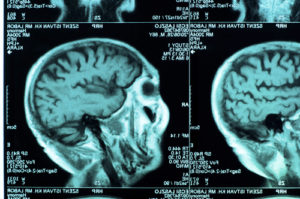Brain Injuries

A traumatic brain injury (TBI) is one of the most devastating injuries that you can sustain in an accident. This type of injury can drastically lower the quality of your life and affect your relationships with your loved ones, too. Tragically, over 1.7 million people sustain this type of injury every year in the U.S.
Common Causes of Traumatic Brain Injuries

Closed TBIs can be caused by a blow to the head or a sudden, violent jerking motion. An open TBI occurs when an object penetrates the skull and damages brain tissue. Some of the most common causes of TBIs include car accidents, slip and falls, and violent crimes. Although these are the most common causes, TBIs can occur at any time the head is struck or thrown back and forth.
Short and Long-Term Effects of Traumatic Brain Injuries
There are three different types of TBIs: mild, moderate, and severe. Each injury is classified as mild, moderate, or severe depending on the extent of the brain damage. Mild TBIs are the most common and are often hard to diagnose. Some of the most common symptoms associated with a mild TBI are:
- Fatigue
- Headaches
- Difficulty concentrating
- Seizures
- Memory loss
- Loss of consciousness for less than 30 minutes
- Confusion
- Dizziness
- Nausea
These symptoms may not appear until hours or even days after the injury has occurred. Some victims may begin to improve quickly, but it is estimated that 15% of mild TBI victims continue to experience symptoms for over a year.
If the victim loses consciousness for more than 20 minutes but less than six hours, it is considered a moderate TBI. If the victim is unconscious for over six hours, it is considered a severe TBI. Victims with severe TBIs may be unresponsive for hours, days, or even months. Some may remain in a vegetative state and never recover from their injuries. If the victim does regain consciousness, he may struggle with physical, emotional, and cognitive changes including:
- Irritability
- Mood swings
- Depression
- Difficulty sleeping
- Loss of bladder and bowel control
- Pain
- Paralysis
- Seizures
- Sensory difficulties
- Slurred speech
- Memory loss
- Impulsiveness
- Reduced cognitive functioning
Victims may notice improvements with physical therapy and rehabilitation, but recovery is unpredictable. Victims typically notice the most improvement within the first six months following the injury, and then hit a plateau in their recovery.
Each TBI is unique, so the short and long-term effects will vary on a case-by-case basis. But, many brain injury victims will continue to incur medical expenses and lose wages for months or years after sustaining the injury. You’ve suffered enough—let our personal injury attorneys step in and fight for the compensation that you deserve.
Legal Representation For Brain Injury Victims
If you or a loved one has sustained a traumatic brain injury, contact Reisch Law Firm today. You have enough to worry about without having to wonder how you will pay bills or make ends meet while you recover. Our brain injury attorneys will handle your personal injury claim so you can focus solely on your recovery. Call 303-291-0555 today to schedule a free consultation regarding your case.
Free Case Evaluation
If you or a dear one got injured in an accident, are having insurance disputes or are facing criminal charges in Denver or in the state of Colorado - contact our Denver personal injury attorneys NOW for a free case evaluation and initial consultation. Time is of the essence. Let our experienced lawyers fight for your justice.
